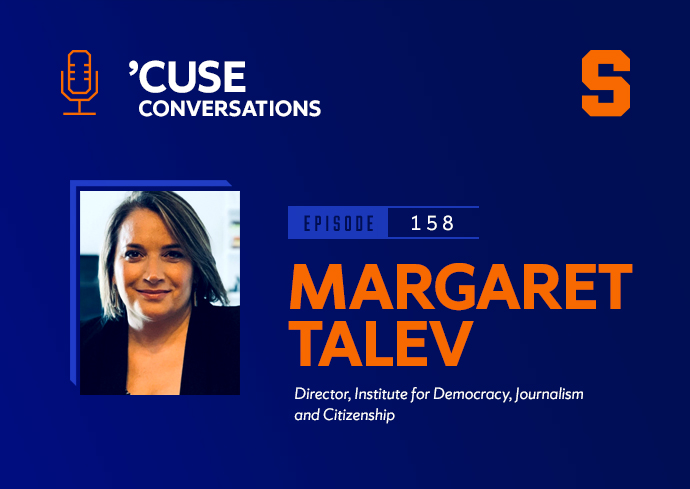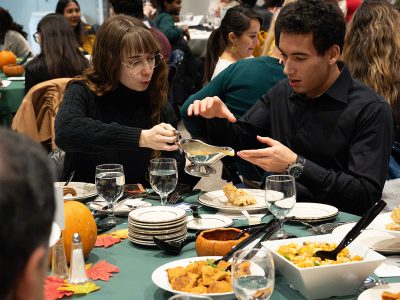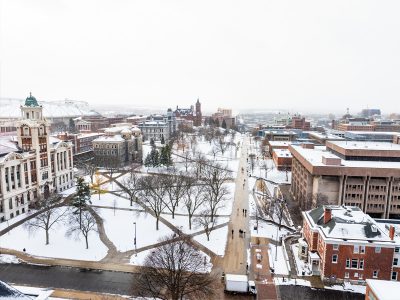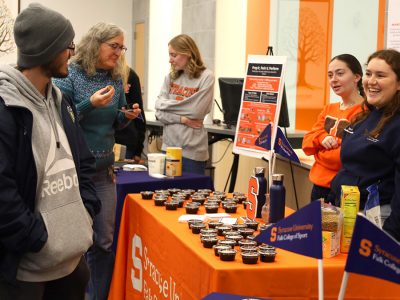Champion of Free Speech and Journalism Margaret Talev Leads Institute for Democracy, Journalism and Citizenship (Podcast)
Margaret Talev can vividly recall the specific moment she knew journalism had failed to properly inform and educate a large portion of the American voting electorate.
It was Jan. 6, 2021. More than 1,000 citizens were protesting at the U.S. Capitol in Washington, D.C. Talev was working as managing editor at Axios, overseeing the outlet’s political coverage. During the events, one of her reporters became trapped in the chambers of the House of Representatives, while another was trapped in the Senate’s chambers.
A decorated and accomplished national political journalist, Talev prided herself on helping people understand the news, both in the short-term and big picture. Talev covered American politics and the White House for 30 years, including working the campaign trail for presidential elections in 2008, 2012 and 2016 as a White House correspondent for Bloomberg News and McClatchy Newspapers.
Talev watched the events unfold and was left wondering how thousands of her fellow citizens could stage a protest based on misinformation.
Unsure of her future in journalism, Talev wanted to focus her career efforts on the relationship between the news that was being produced and consumed by voters and how that was impacting their views on democracy and governance.
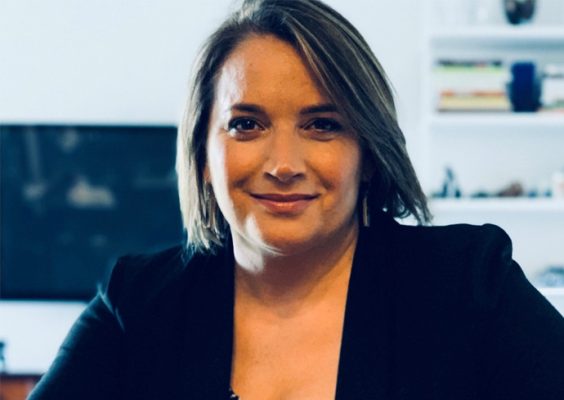
She was immediately interested in serving as the Kramer Director of the Institute for Democracy, Journalism and Citizenship (IDJC), a joint effort of the S.I. Newhouse School of Public Communications and the Maxwell School of Citizenship and Public Affairs. Based in Washington, the institute promotes nonpartisan, evidence-based research and dialogue in the public interest, striving to create new knowledge, foster a more informed and engaged citizenry and better equip students for success.
“I cared about focusing on the governance and the information piece of this, which is, how is democracy working for people? What do people believe democracy is? And why are a segment of Americans so upset with the process that they’re willing to resort to violence or willing to believe conspiracy theories? That became the central question that I was interested in reporting on, and the chance to build an institute that would really be dedicated to looking at the connection between news and government, between journalism and politics, between how people perceive the way their country is working and the news they’re ingesting,” Talev says of the IDJC, which will formally open its headquarters in Washington later this spring.
On this “’Cuse Conversation,” Talev discusses the mission and vision for the IDJC, how distrust in election results and politicians is at an all-time high, the role citizens can play to address issues facing our democracy and the challenges artificial intelligence poses.
Check out episode 158 of the “’Cuse Conversations” podcast featuring Talev. A transcript [PDF] is also available.
